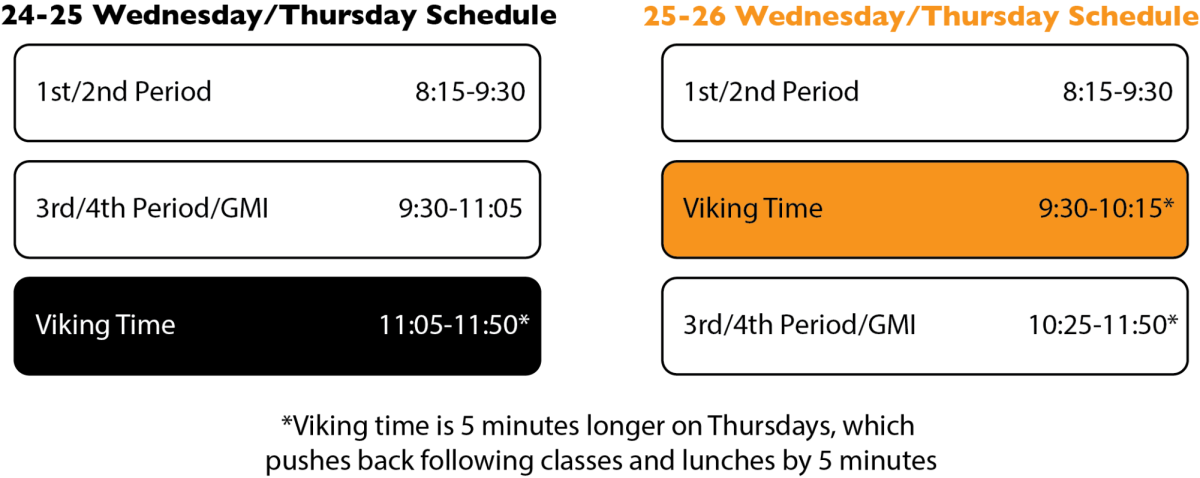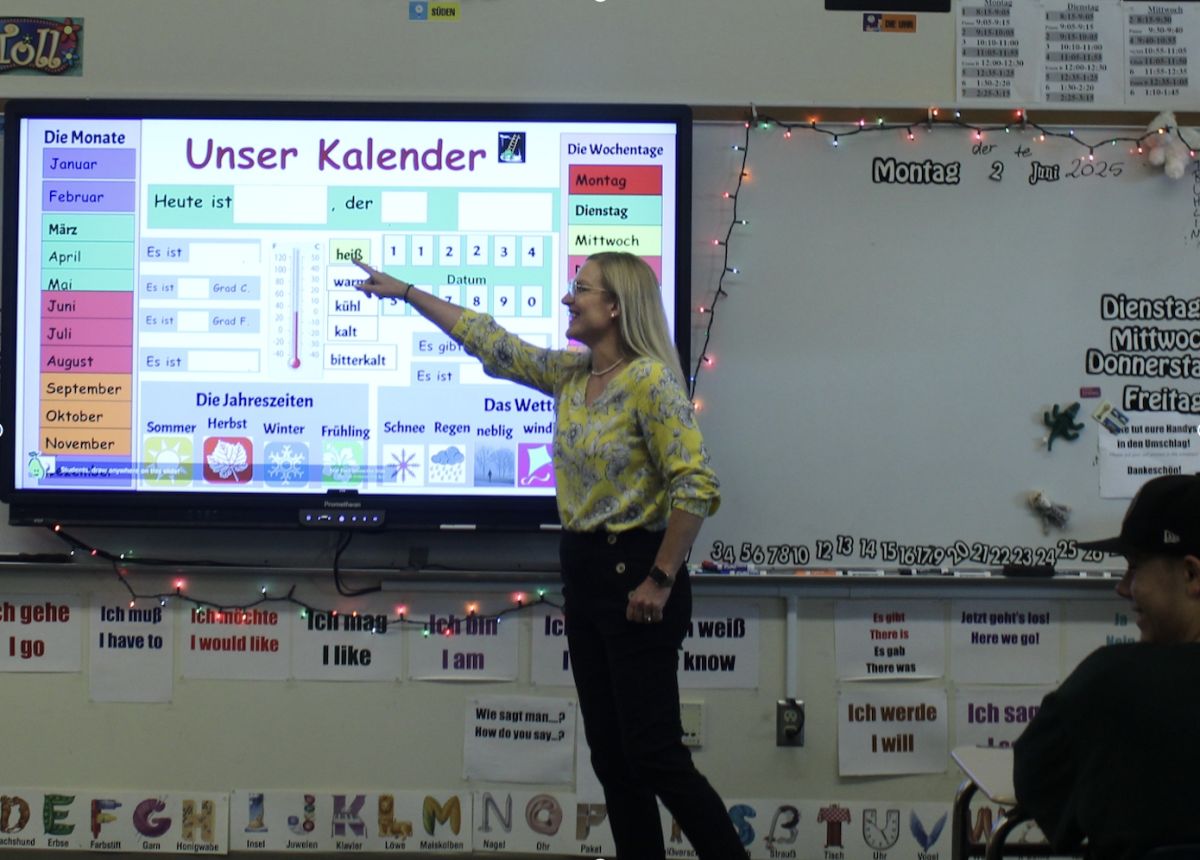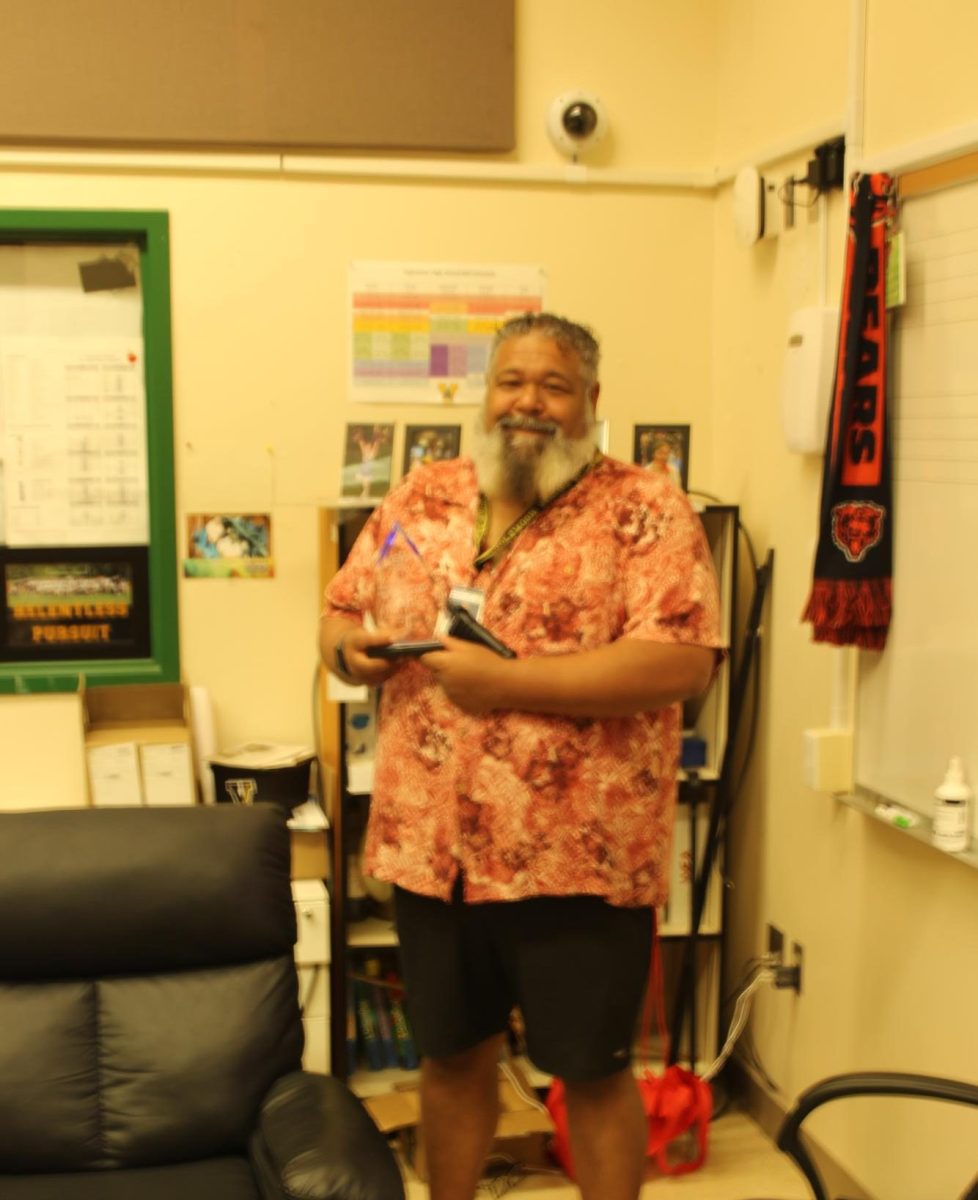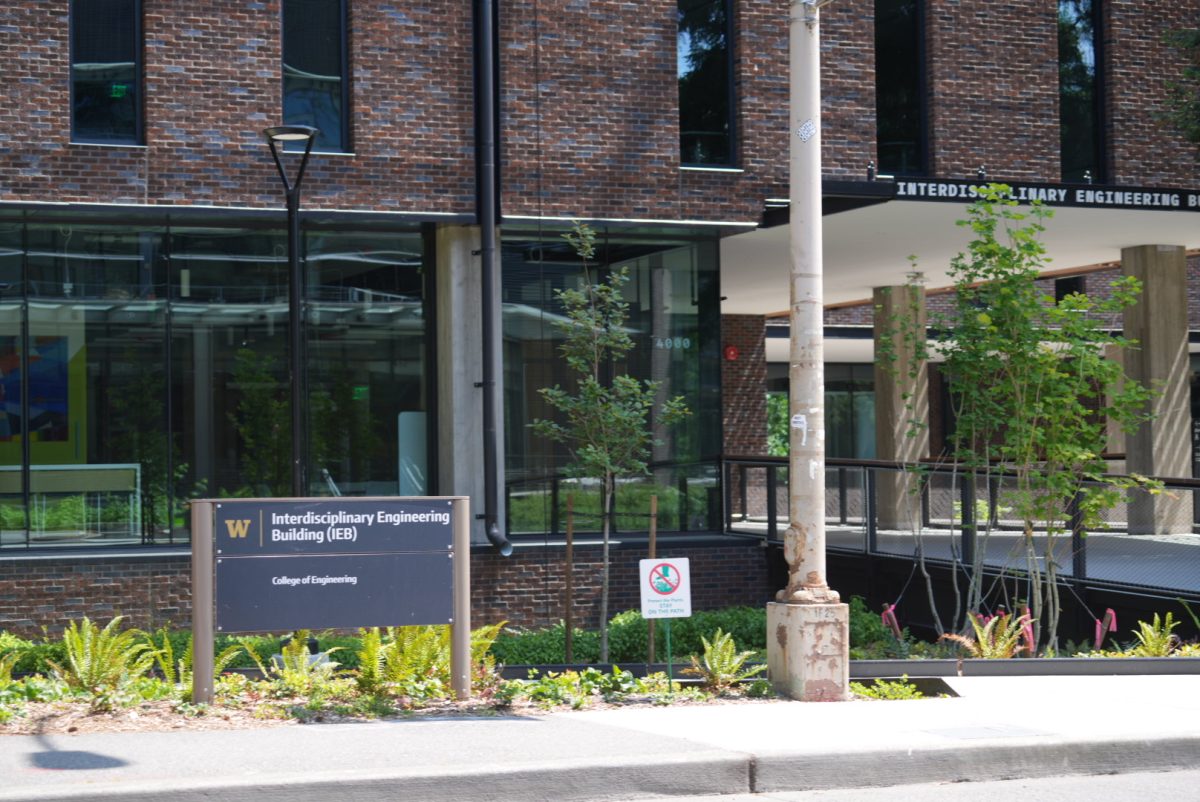Throughout the past year, members of Northshore school district appointed committee has been looking for better ways to support students in meeting the new Core 24 credits graduation requirement: a state-based framework to increase rigor in schools. After many discussions, the final decision is a seven-period day.
Because of the 24 credit requirement, there is no space for students to try different classes without their diploma at risk. Students are required to pass every class they take, assuming they take the normal schedule of six periods a year for four years. Especially since the goal of high school is to test out different classes and how they match with students’ interests, said Assistant Principal Erica Hill, it is inequitable to not allow students any room for error.
“[This effort is] really about giving students the opportunities to best fit in those requirements they need to graduate,” Hill said, “allowing them to pursue different electives, find that passion and interest in school.”
According to a January 2019 report by Superintendent Dr. Michelle Reid, out of the students in the graduating class of 2019, 187 are not on track to graduate, with fewer than 18 credits at the start of their senior year.
“Our students identified as low income are less likely to be able to take courses outside of the school day to make up or accelerate credit,” states Dr. Reid in her report. “Maintaining our current schedule will continue to disadvantage students who fail courses and are unable to pay for outside credit.”
Due to this, finding a solution to this problem was a thoughtful process, according to Hill. There was a committee of 22 members, comprised of parents, teachers, principals, counselors, registrars and athletic directors, all providing their insight. The decision was an extensive process involving analyzing case studies as well as the advantages and disadvantages of each model. English teacher and librarian Julie Westerbeck said she remembers when Inglemoor tried a seven-period schedule in the past.
“We were making our work-load insane and class sizes were huge [with the seven-period schedule]. It seemed like a bad plan when we know that smaller class sizes work better,” Westerbeck said.
According to Westerbeck, the school still struggles with making class sizes equitable. Because of this, she said she thinks that if there is anything to add, the change shouldn’t be another class. Instead, more opportunities should be given for students to have more private time with the teacher.
For example, Inglemoor is conducting a pilot program on March 18-19 and 25-26 that allows students who are struggling to pass their classes to have small group work time for 15 minutes with the teacher after each block period.
One of the groups most impacted by this change is the music department, who, according to district music coordinator Ted Christenson, wasn’t consulted in this decision.
“This could really cripple the music program because so many kids that are in the music program are taking full IB. They were counting on being able to do an eighth period to do music. Right now, they aren’t able to do eight periods so they’ll have to pick full IB or music,” Christenson said, “and it could be devastating.”
However, head of the art department Zane Mills said that although he thought the choice could have helped specifically those in need instead of everyone, it still addresses the administration’s main concern.
“Inglemoor already does a seventh period,” Mills said. “It is just more equitable for all now.”
















